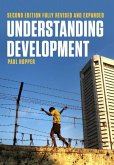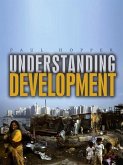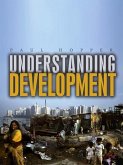Every era, it is said, has its defining malady. What will be ours? Will it be a new human pandemic caused by an animal-borne infectious disease, such as swine flu? Will it be a lethal microbe like anthrax deliberately released by terrorists bent on causing mass civilian casualties? Or will it be one of our new 'lifestyle' diseases - the epidemics of smoking, obesity and excessive alcohol consumption that threaten to engulf modern societies? Perhaps our era will even be remembered for its tragic neglect of certain health issues - endemic diseases such as malaria, tuberculosis and HIV/AIDS that continue to ravage millions in developing countries. In this book Stefan Elbe shows that in the new millennium international politics is no longer characterized by its preoccupation with a single disease, but precisely by its need to urgently confront what is now an epidemic of epidemics. Over the past decade a whole host of diverse global health issues have raised the highest levels of political concern, provoking governments and international institutions to tackle such health threats through the prism of security - be it national security, biosecurity, or human security. This convergence between health issues and security concerns has also produced the new notion of health security, which has already begun to shape the way international health policy is formulated. The intersection of the worlds of health and security is beginning to change our very ideas of what security means and how it is achieved. At the outset of the twenty-first century, practising security increasingly demands that citizens become patients, that states resemble huge hospitals, and that security itself becomes a technology of medical control. It is this transformation of security, Elbe argues in an innovative and engaging re-conceptualization of the health-security nexus, that marks nothing short of the medicalization of security.
'Overall, this is a very good book, containing sustaineddiscussions on important dimensions of health security. It has thepotential to inform transdisciplinary debates and provide foci forresearch in many areas.'
International Sociology
'Professor Elbe has provided an important resource in thiswell-written and documented book É In it, he explores theevolution of human health security, its medicalization, and itslikely impact É Through a series of case examples, andreferences to the work of several of the best thinkers in thisfield, he develops his argument about the seemingly inexorablemarch of medicalization as the means of achieving human healthsecurity, and points to a future that is likely to be dominated bythe practice of technical medical approaches and pharmaceuticalinterventions.'
Sarita Bhalotra, Brandeis University
'Every now and then a new book comes along that challenges us tothink more deeply about an issue, to consider more carefully thechoices we make and their impact. This book is just such a book.With this new work on the medicalization of security, Elbe has onceagain produced an insightful piece of work that will no doubt provea reference point for policy-makers, academics, practitioners, andstudents, for years to come.'
Adam Kamradt-Scott, London School of Hygiene and TropicalMedicine
'This is an excellent book which provides an authoritativeintroduction to the subject coupled with a challenging and originalnew line of thinking about the problem of securing globalhealth.'
Colin McInnes, Aberystwyth University
'Stefan Elbe has written a lucid and learned examination of thedebate surrounding the securitization of health in the modern era.A fascinating contribution to the increasingly salient discourse onhealth and global governance.'
Andrew Price-Smith, The Colorado College
International Sociology
'Professor Elbe has provided an important resource in thiswell-written and documented book É In it, he explores theevolution of human health security, its medicalization, and itslikely impact É Through a series of case examples, andreferences to the work of several of the best thinkers in thisfield, he develops his argument about the seemingly inexorablemarch of medicalization as the means of achieving human healthsecurity, and points to a future that is likely to be dominated bythe practice of technical medical approaches and pharmaceuticalinterventions.'
Sarita Bhalotra, Brandeis University
'Every now and then a new book comes along that challenges us tothink more deeply about an issue, to consider more carefully thechoices we make and their impact. This book is just such a book.With this new work on the medicalization of security, Elbe has onceagain produced an insightful piece of work that will no doubt provea reference point for policy-makers, academics, practitioners, andstudents, for years to come.'
Adam Kamradt-Scott, London School of Hygiene and TropicalMedicine
'This is an excellent book which provides an authoritativeintroduction to the subject coupled with a challenging and originalnew line of thinking about the problem of securing globalhealth.'
Colin McInnes, Aberystwyth University
'Stefan Elbe has written a lucid and learned examination of thedebate surrounding the securitization of health in the modern era.A fascinating contribution to the increasingly salient discourse onhealth and global governance.'
Andrew Price-Smith, The Colorado College
'Professor Elbe has provided an important resource in this well-written and documented book. In it, he explores the evolution of human health security, its medicalization, and its likely impact. Through a series of case examples, and references to the work of several of the best thinkers in this field, he develops his argument about the seemingly inexorable march of medicalization as the means of achieving human health security, and points to a future that is likely to be dominated by the practice of technical medical approaches and pharmaceutical interventions.' -- Sarita Bhalotra, Brandeis University
'Every now and then a new book comes along that challenges us to think more deeply about an issue, to consider more carefully the choices we make and their impact. This book is just such a book. With this new work on the medicalization of security, Elbe has once again produced an insightful piece of work that will no doubt prove a reference point for policy-makers, academics, practitioners, and students, for years to come.' -- Adam Kamradt-Scott, London School of Hygiene and Tropical Medicine
'This is an excellent book which provides an authoritative introduction to the subject coupled with a challenging and original new line of thinking about the problem of securing global health.' -- Colin McInnes, Aberystwyth University
'Stefan Elbe has written a lucid and learned examination of the debate surrounding the securitization of health in the modern era. A fascinating contribution to the increasingly salient discourse on health and global governance.' -- Andrew Price-Smith, The Colorado College
'Every now and then a new book comes along that challenges us to think more deeply about an issue, to consider more carefully the choices we make and their impact. This book is just such a book. With this new work on the medicalization of security, Elbe has once again produced an insightful piece of work that will no doubt prove a reference point for policy-makers, academics, practitioners, and students, for years to come.' -- Adam Kamradt-Scott, London School of Hygiene and Tropical Medicine
'This is an excellent book which provides an authoritative introduction to the subject coupled with a challenging and original new line of thinking about the problem of securing global health.' -- Colin McInnes, Aberystwyth University
'Stefan Elbe has written a lucid and learned examination of the debate surrounding the securitization of health in the modern era. A fascinating contribution to the increasingly salient discourse on health and global governance.' -- Andrew Price-Smith, The Colorado College








